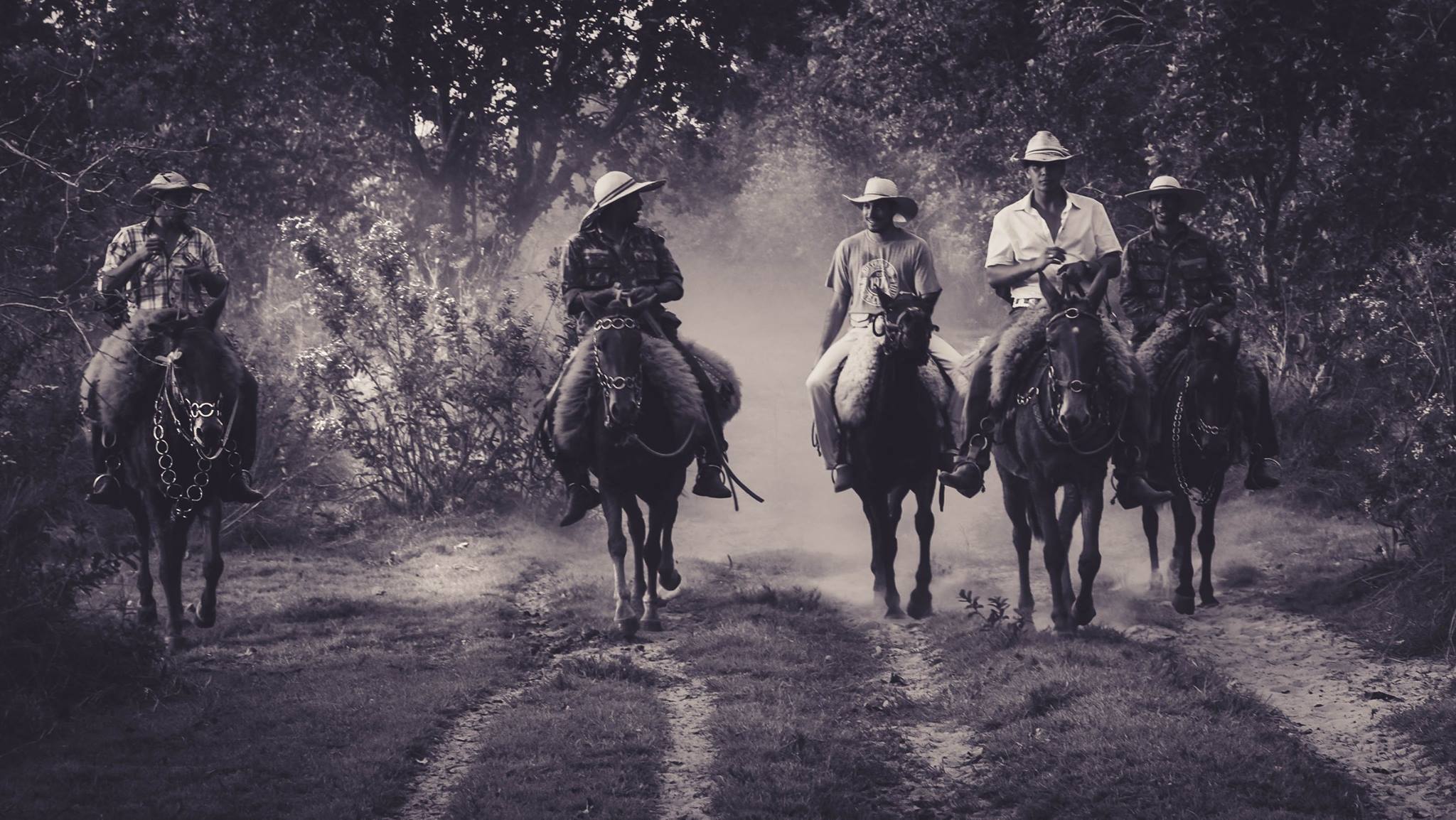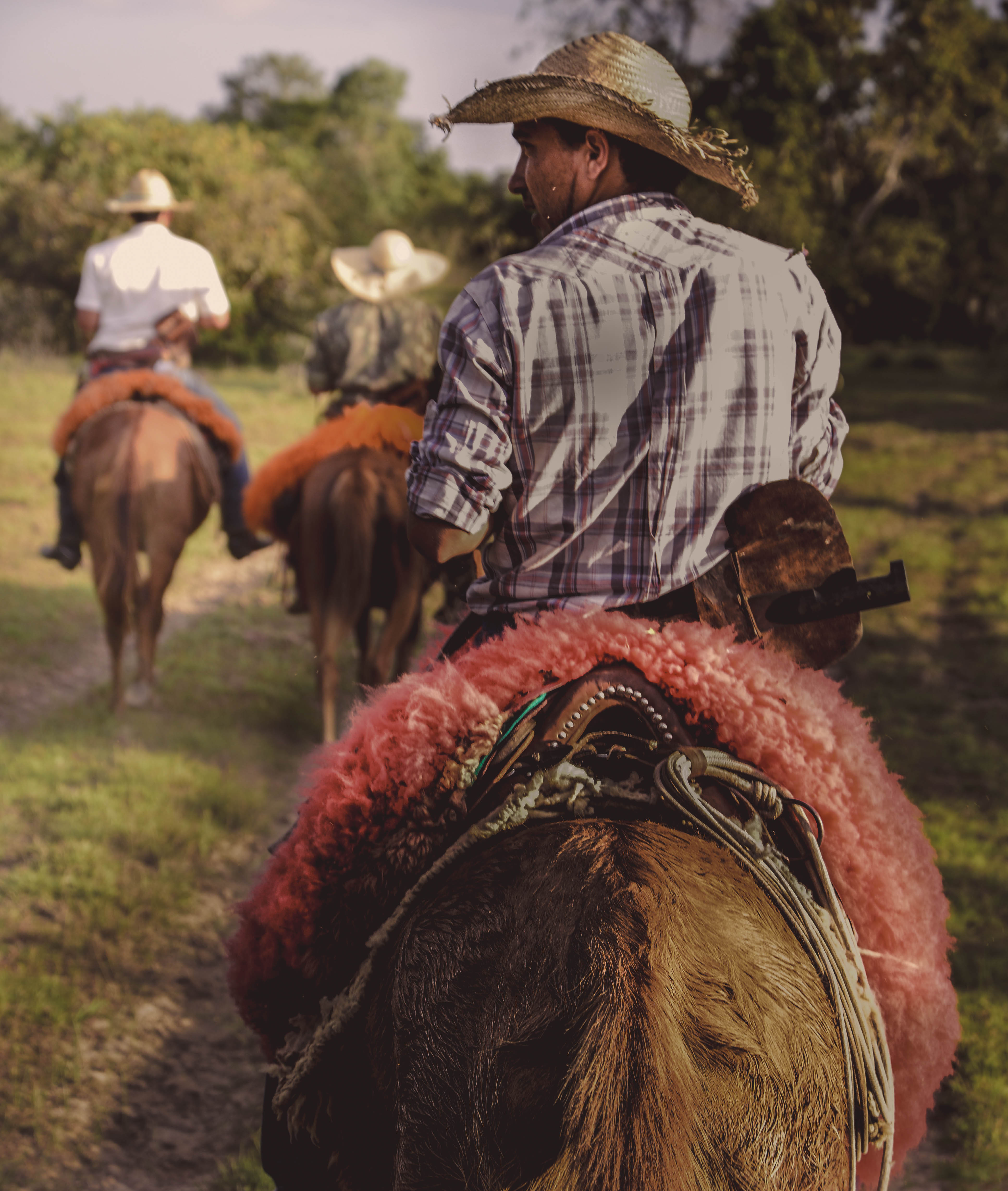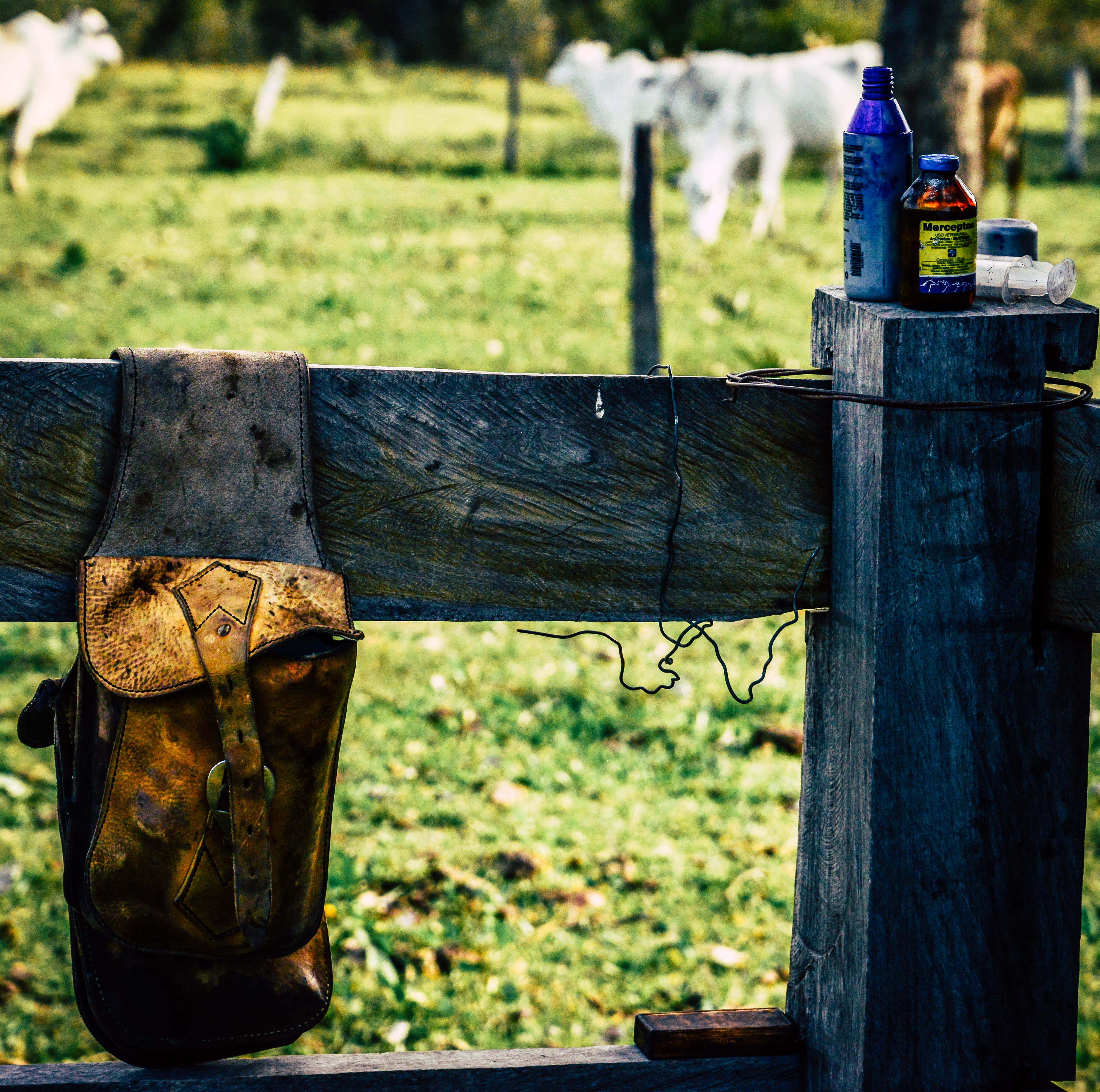Mustering with Pantaneiros
Written by Lindsey Perry
This is the fifth and final installment in a series about life on a cattle station in Brazil. You can find part one here, part two here part three here, and part four here.
I was sleepy and admittedly a little hungover, but the rhythmic footfalls of my chestnut, Madrinador (meaning old wise master) and the other pantaneiro’s horses in the sandy tracks leading to the river were keeping me from succumbing to sleep. Noguerra, the farm manager, indicated for me to follow his horse through the jungle palms, while the other three men took off whooping and hollering after the dog, an American hound that had taken off baying at potential jaguars, endemic in the Pantanal region of Brasil. The grass was high here and the bushes crowded in, I glanced around for spiders and plunged through, vines grabbing at my stirrups. In a few moments, I emerged on the bank of the wide and fast flowing river that bordered Tiago’s Fazenda, and the other’s returned flush faced and laughing. No jaguar this time, phew. It was time to dismount and take smoko.
A couple of hours earlier in the gathered dark I had crept out of my warm blanket into the inky black. The sun was still a-ways from rising but I didn’t want to risk missing an opportunity to ride solo with the Fazenda pantaneiro’s in their morning mustering work. The night before we had had a party and there was general laughter that after a long day of beer, meat and cachaça that I would not wake up for an early start! Of course, this made me determined to follow through and at 5am the following morning, emerged from the blanketed cocoon of the room I shared with Sarah. Gathering the water, backpack and sandwich I had made the night before, I fumbled my way to the stables.
It was a short walk, tripping over the sleeping hound puppies and passing the sandy orange orchard. In the darkness I could make out the shape of Macarrao up ahead walking behind a white horse. This horse was kept close to the house and used to go and collect the other horses in the morning. “Oi” he remarked in surprised greeting as he mounted up and rode away. Awkwardly, he was the first to get up, and rather than sit in the stables watching the other men wake and get dressed from their bunks, I sheepishly returned to the main house where Tiago’s father, Nilton was up and waiting for me with a cigarette and a flask of black, strong coffee. The manager, Noguerra, joined us and he and Nilton discussed the day’s work while I ate a workers breakfast of beef tossed in cassava flour.
The sound of hurried hooves indicated that the herd of working horses were trotting past and Noguerra and I arrived as the men pushed the horses into a yard and with a crack of the stock whip the thirty or so horses and mules lined up with the bums to the fence, and the men roved the line of faces seeking out their chosen mounts. Once decided upon, a rope was thrown over the neck of the steed and the bridle put on. These horses were led over to the stable and tied up. The remainder were let go.
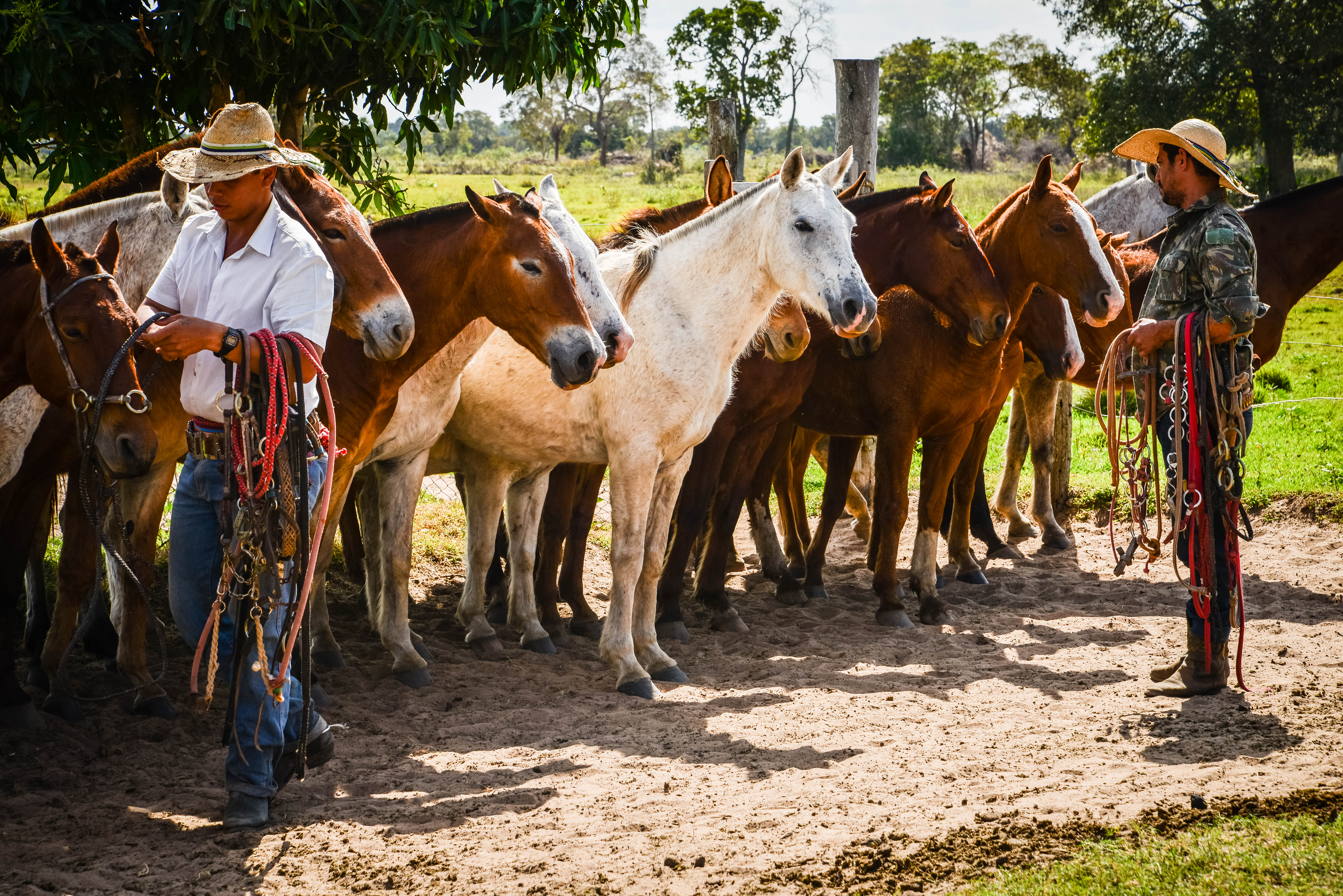
The saddling process included the men joking around with each other, gentle taunts about roping skill, fishing prowess, luck with women and near misses with jaguars. Not so different to the banter amongst Australian ringers. A saddle blanket was followed by the leather gaucho saddle, a saddle with a seat so hard that an exuberant square of thick sheepskin that was typically dyed a vibrant orange or red was placed on top of the leather and lashed down with a leather surcingle to give comfort to the rider.
By the time we reached the river, my early morning enthusiasm was beginning to wear off. Basilio filled a cows horn with water and matte, the terere ritual that Sarah has described here, and as I was thirsty I stayed in for about 4 or 5 rounds of tea. I ducked out at exactly the right moment, as to refill the bottle Basilio refilled the water bottle by dragging it through the murky river water. The men continued for a couple of rounds like this. Maccarao pointed out ‘Onsa’ indicating jaguar foot prints in the sand along the river bank. This tea break was a chance for the men to plan the muster of the paddock we were in, Noguerra in his role as manager told Basilio and Toto to circle to the east, Maccarao would drop down the centreline while I, the inexperienced gringa would follow Noguerra to the western fenceline.
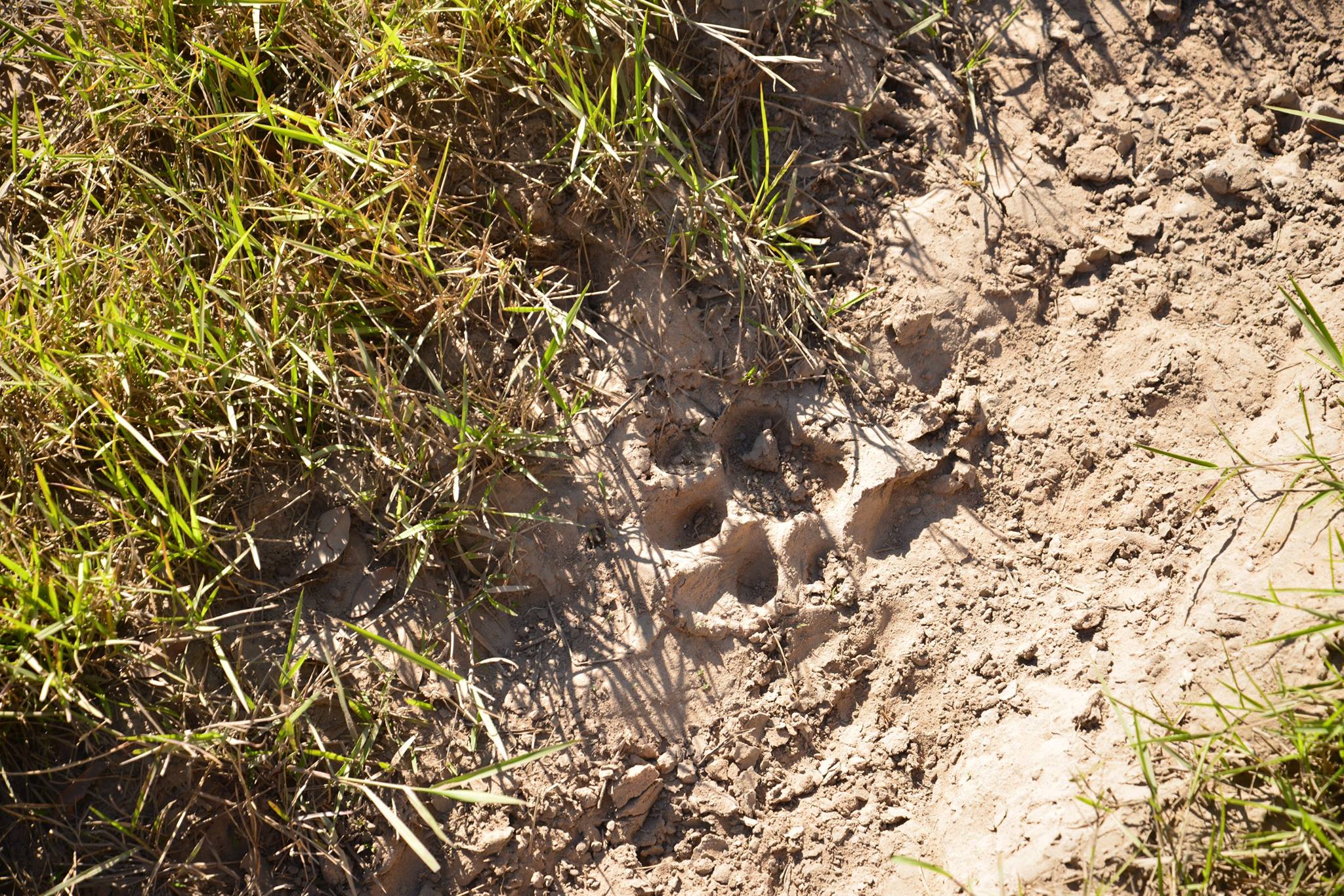 Jaguar prints found on a morning muster.
Jaguar prints found on a morning muster.
As we left the river bank I followed Noguerra into a landscape from a vivid dream. We were riding in wetlands, enormous tussock grass plains teeming with wildlife and areas of standing water … this open area spreading out away from me, a raised arm or shout from him indicating some new bird whose portugese names were quickly forgotten, deer leapt, splashing through the pools and macau parrots in trios flew overhead. We eventually hit a fenceline and rode along it until it was time to cut back towards the yards, as we turned for home we rode through the jungle palm clumps which as we rode through the trees, opened up inside, cathedrals of green and brown within these tall trees. Inside one of these was a down cow. Noguerra paused for a moment and turned to explain to me that she was old and that when the sun got higher and she got warmer she would rise. Back at the yards the other men had mustered all the cattle, and I secretly wondered whether they had deliberately sent me in the other direction out of concern for my skill on horseback.
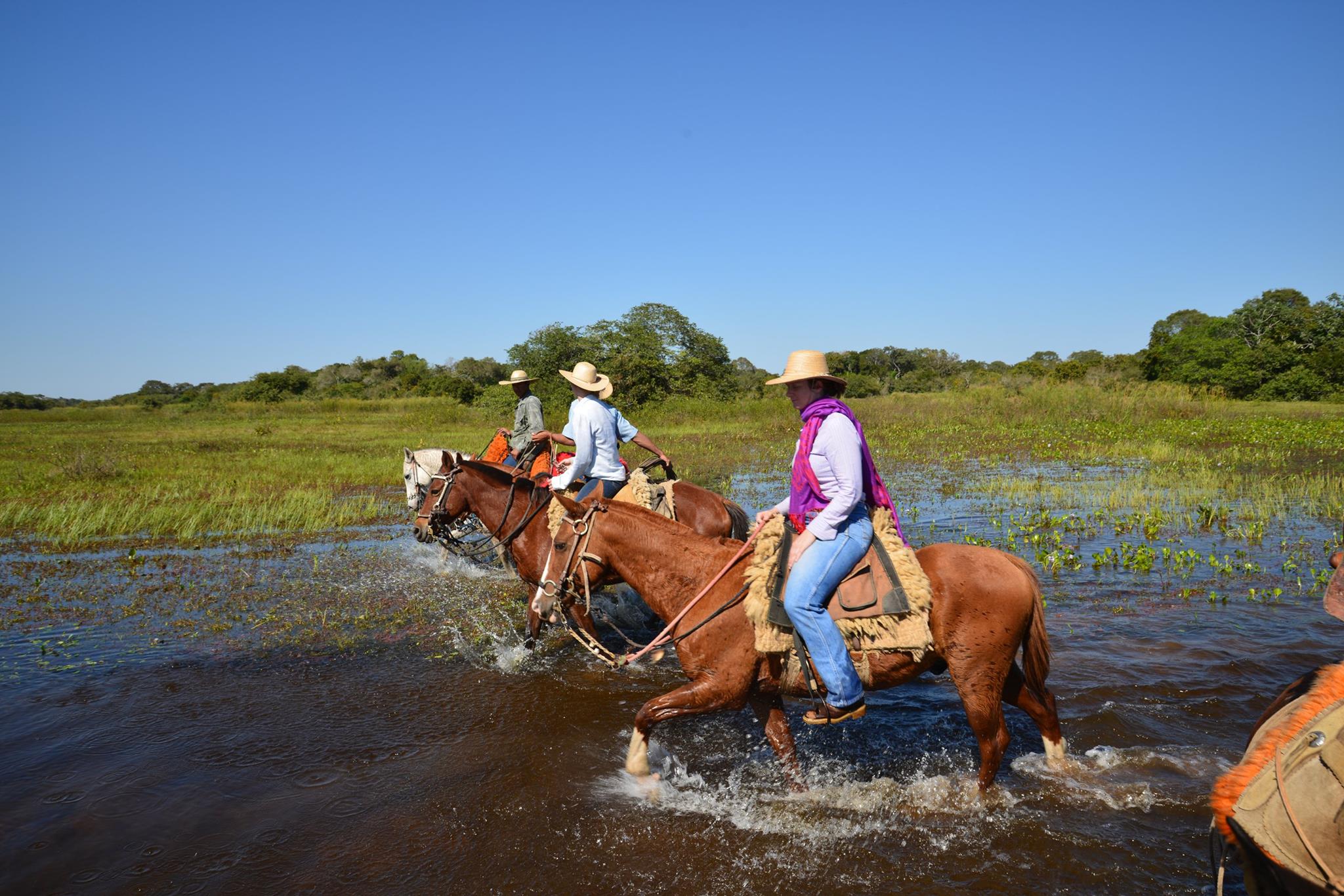
After all that work there were no new calves to brand and no sick animals to treat so we opened the gates and headed for home. Basilio had his horse fall into step with Madrinador and opened up a discussion in portugese about horse training, he was interested in how the horses are trained in Australia, whether to neck rein or two reins on the bit, how they were trained to stop, how long the process took and the kind of equipment we used. I pulled out my Iphone and there, seated on my electric orange sheepskin in the remote wilds of Brasil, showed him a picture of my gelding at home in SE Queensland, a grey Arabian. He was taller and fuller than the spry, lithe horses of the Pantanal and Basilio called out to the men to come look, everyone reined back and passed the phone around “Muito lindo!” they all murmured (very pretty).
As we approached the yards, I had fallen behind and spurring Madrinador into a canter to catch up, Toto motioned for me to keep going! He kept pace with me as we sprinted through the vivid landscape of the Pantanal Region toward the yards, one hand on the reins, one on my hat!
